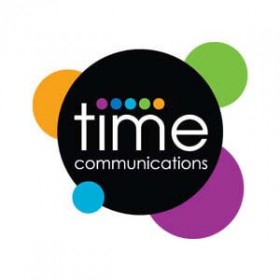Are you prepared for the telephony changes?
It’s now time to prepare your business for the Analogue & ISDN telephone line switch-off!
It was back in November 2017 that BT first announced that they were planning to switch off their PSTN and ISDN services in 2025. This was a massive announcement with the news that traditional phone systems would no longer operate after that switch-off.
The PSTN (Public Switched Telephone Network) is made up of various protocols including all Analogue phone lines and all ISDN digital phone lines (Integrated Services Digital Network). These two products have supported business and domestic services for decades and the impact of the announced switch off was significant! The design of Analogue phone lines dates back to the 1800’s whilst ISDN Digital Services have been with us since the 1980’s. Now that we are fast approaching the withdrawal of PSTN and ISDN services, businesses should plan to move away from these ‘end of life’ phone lines as soon as possible.
The experience of working through the Covid Lockdowns has shown business how inadequate PSTN & ISDN were in supporting home working, so the rush is already on to look at alternative telephone and communication solutions that will firstly protect against the switch off and secondly, provide businesses with a reliable, cost effective solution for our new, hybrid way of working.
Is it just Analogue & ISDN lines that are affected?
Unfortunately not, ADSL broadband services along with FTTC broadband (Fibre to the Cabinet), will also need changing as these rely on Analogue copper wires for their connection. Other products also need to be checked as these too may be reliant on Analogue lines – such as:
• PDQ – Credit Card machines
• Analogue modems
• Franking Machines
• Workshop Bells / Sirens / Lights
• Security Alarms
• Fire Alarms
• CCTV
• Lift Lines
If any of the above are in use in your business, these will need replacing.
Will my Business be affected by the Analogue & ISDN Switch-off?
The impacts of the switch-off are already being felt and this is only going to get worse!
The completion date of 2025 is in many people’s minds, a long way off. However, the effects have already impacted many businesses. BT have already started the implementation of “stop-sell” in many areas, whereby certain exchanges have already been upgraded and can no longer support any additions or changes to the Analogue or Digital Services being provided. This means that while the old legacy lines will continue to remain in place until switch-off, a complete upgrade is the only option should any changes be required.
What is the replacement option for Analogue & ISDN Lines?
Most of us are used to using the internet to watch TV, browse the Web, send and receive e-mails and make video calls – telecommunications is no different.
Cloud Telephony (sometimes called VoIP, Voice over Internet Protocol, SiP), uses the internet to carry voice calls just as it does for video calls.
Because Cloud phone systems are located ‘in the cloud’ rather than in an office, they allow a fully ‘Unified Communication’ solution meaning that telephone calls can be delivered between deskphones, smartphones, softphones (on a PC / Mac), cordless handsets and headsets so providing an ideal solution for remote and hybrid working.
Cloud telephony can be a low cost solution for both the larger organisation and the smallest micro business as it isn’t reliant on any hardware located in the client premises.
How can I learn more and prepare for the PSTN switch-off?
Speak to someone who knows the telecoms industry really well and can advise you on what solutions are available. Not only will you need to consider an IP (Cloud) solution for your telephony to protect yourself against the switch-off, but you will also need to consider what type of Internet connection you have?
1. Is your current broadband affected by the switch-off (such as ADSL or FTTC)?
2. Can your current connection support both voice and data, or is a second connection required?
Finally, many in the industry believe that the huge volume of businesses and organisations that still haven’t made plans are such that there may not be enough resource to support the massive migration that’s needed before switch-off.
There’s no doubt that towards the end of 2024 and into 2025, there will be a strain on those supplying, supporting and installing replacement services.
There is positive news however; the replacement option of Cloud Telephony offers a much greater range of features that were previously not possible with the older technology and in addition, these are nearly always at a lower cost than the previous solution.
If you would like any help or advice from the author of this article, feel free to make contact – jeff.c@time-tele.com.
Jeffrey Cohen has been working in the telecommunication industry since April 1995 and has seen the transition from Analogue to ISDN Digital telephony and now to IP Telephony.
Time Communications has been supplying telephony to its clients across the country since February 2001.

© Simply Customer Limited 2024. All rights reserved